Summary
- TNG succeeded in carving its own identity from TOS with help from a bizarre rule forbidding the mention of “Spock.”
- The rule against saying “Spock” was enforced by executive producer Rick Berman to keep TNG separate from TOS.
- TNG eventually embraced Spock in its fifth season, reflecting the show’s success and shift in attitude towards TOS connections.
Few sci-fi franchises have had cultural staying power at the level of Star Trek. Created by Gene Roddenberry, the original series introduced the world to William Shatner’s Captain Kirk, Leonard Nimoy’s Mr. Spock, and the rest of the USS Enterprise crew. The show set the stage for an entire universe of storytelling. So when Star Trek: The Next Generation went into production, it had a tough job: honoring the legacy of TOS while carving out its own identity. The general consensus among Trekkies is that it succeeded. But behind the scenes, TNG also had some strange rules designed to differentiate it from its predecessor, one of the weirdest being an outright ban on saying “Spock.”
By the time TNG had reached its third season, Starfleet had found its groove. The Next Generation was producing some of its most exciting and cerebral episodes and had managed to step out of TOS‘s shadow. However, when the show attempted to bridge the narrative between TOS and TNG in the episode “Sarek,” the writers bumped up big time against the no-Spock rule.
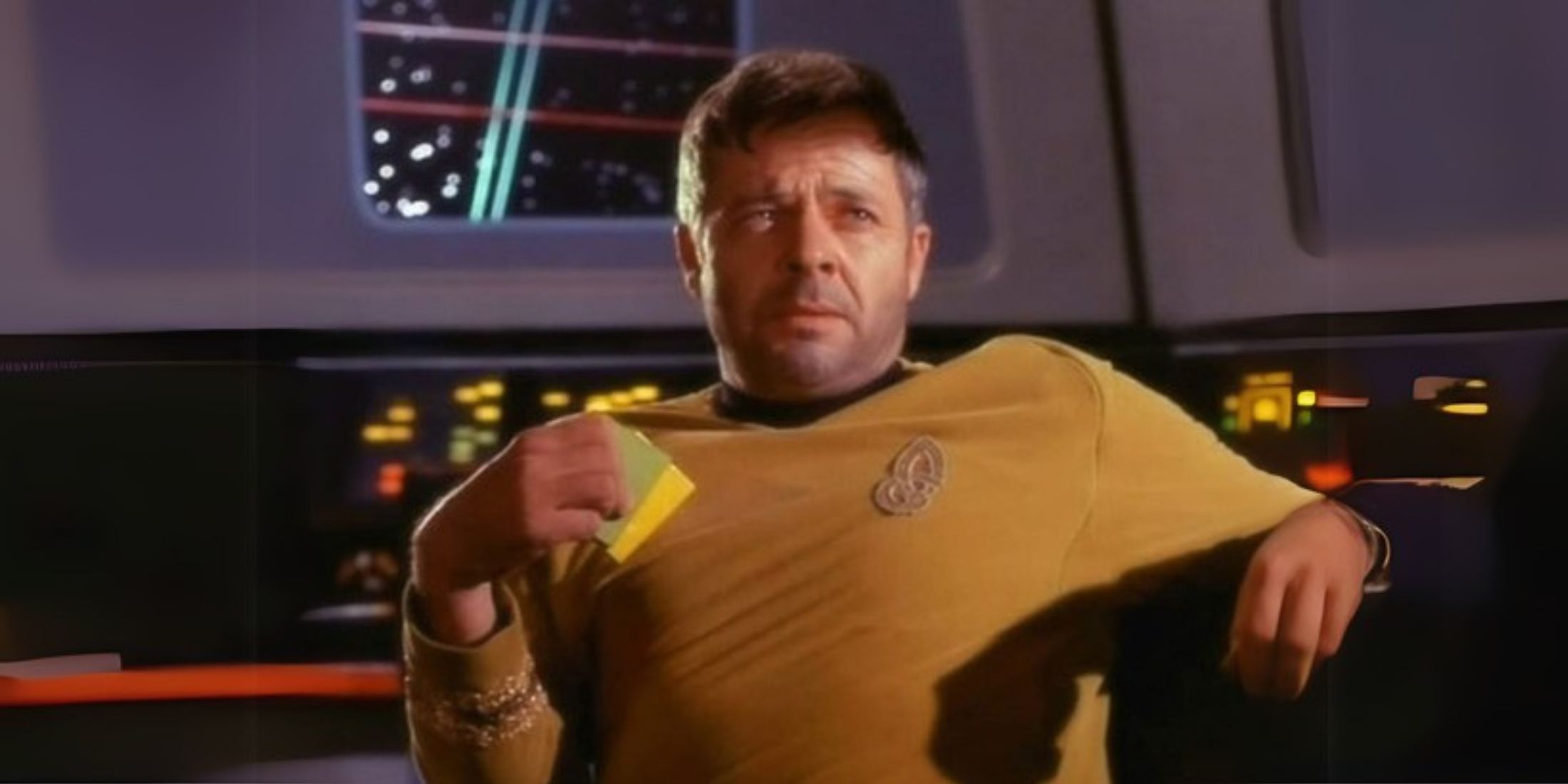
Related
Star Trek: How A 1967 Production Memo Debunked a Long-Held TOS Fan Theory
A producer’s memo from an episode of Star Trek: The Original Series proves a popular fan theory about the Starfleet insignia dead wrong.
Why Was Spock Off-Limits?
Apparently, the forbidding of Spock’s name wasn’t arbitrary. It was, in fact, a deliberate decision, one that was strongly enforced by TNG executive producer Rick Berman. In the oral history book The Fifty-Year Mission: The Next 25 Years, writer Ira Steven Behr recalls how Berman was adamant about keeping TNG separate from TOS. His reasoning? He didn’t want the newer series to rely too much on nostalgia or feel like it was living in the shadow of the story that came before.
This wasn’t a one-off thing, either. Early on, TNG took a strict approach to barring references to TOS. DeForest Kelley made a brief cameo as an aged Dr. McCoy in “Encounter at Farpoint,” but beyond that, the show steered clear of overt connections. So when Behr was working on the emotional episode “Sarek,” he ran into a major roadblock — the impossible task of telling a story about Spock’s father without ever mentioning Spock himself.
In the book, Behr says he pushed back against Berman, arguing that the omission didn’t make sense and requesting a one-time exception. Sarek’s strained relationship with Spock was an essential part of his character, as seen in TOS as well as the films Star Trek 3 and 4. Somehow, the writers were supposed to tackle Sarek’s decline and not acknowledge one of the most important figures in his life: his own son.
When we did the ‘Sarek’ rewrite, the fight over the word ‘Spock’ was insane. I was absolutely not allowed to use the word ‘Spock.’ Rick made a big issue of it and said we can’t do it. There’s no way.
While it’s commendable that the TNG creators wanted to distance the new series from the success of the past, the complete barring of the name in an episode so intrinsically tied to Spock himself seems arbitrary and potentially even confusing for fans.
The Fight for the Name
Despite Berman digging his heels in, Behr wasn’t ready to give up. During one of his many visits to Berman’s office, he decided to bring it up again, asking why they couldn’t say “Spock.” Apparently, Berman leaned back in his chair, annoyed. Instead of giving a reason, he just sighed and finally relented: “OK, you can say it once.”
That was it. One single mention of Spock’s name was allowed, and Behr took the win. Thanks to his fight, Trekkies can still hear the name Spock buried in the dialogue of “Sarek” — once.
Spock’s Surprising Season 5 Return
Despite the show’s mission to stand on its own, just two seasons later, TNG did a complete about-face with the two-parter “Unification.” Not only did they name-drop Spock repeatedly, but they actually brought Leonard Nimoy onto the show for a guest appearance. Suddenly, the thing that had been off-limits in “Sarek” was now front and center.
It was clear that something had changed in the minds of the producers. By season 5, TNG was no longer struggling to prove itself — it was a massive success. It didn’t need to worry about TOS overshadowing it, because it had become the definitive Star Trek show of its time. On top of that, Star Trek VI: The Undiscovered Country was in production, and Nimoy’s involvement in the franchise made his appearance in TNG a natural fit. However, for Behr and others who had fought against the Spock ban, the sudden reversal was likely frustrating.
To make matters worse, some of the writers for Star Trek, including Michael Piller, weren’t happy with the “Unification” episode at all. He recalled feeling that he could have made Spock’s TNG appearance more interesting, and that he could have done more than just diplomacy. Fans may have loved the episode, but Piller did not:
It’s no secret I was disappointed by my own work on it more than anything else. I thought it was a historic opportunity, and I don’t think we delivered what the potential of it was. […] It was our feeling if you’re going to bring Spock out of retirement, it needs to be something of cosmic significance.
TNG’s Quest to Stand on its Own Merits
While the Spock ban may seem like an unnecessary restriction, particularly in a Spock-adjacent episode like “Sarek,” some argue that Berman and his many rules actually helped TNG become the success it was. By distancing itself from TOS, The Next Generation was forced to establish its own identity rather than lean on familiar faces, names, and nostalgia in general. In an era where many franchises rely on constant callbacks to keep audiences engaged, TNG reminds us of a bolder approach: it focused on building new iconography.
There’s no doubt that the show created a legacy of its own, introducing iconic characters like Patrick Stewart’s Captain Picard and Brent Spiner’s Data. By the time “Unification” aired, TNG was strong enough to bring Spock into its world rather than rely on him to validate its existence.
On the one hand, keeping TNG separate from TOS allowed it to forge its own legacy. On the other, the forced omission of Spock in “Sarek” seems almost absurd, especially considering how freely the character was used later on in “Unification,” and later in shows like Deep Space Nine and Discovery. In the end, whether the Spock ban was a mistake or a strategic move is up to the fans to decide. Either way, TNG proved that it didn’t need nostalgia to succeed — it became legendary all on its own.
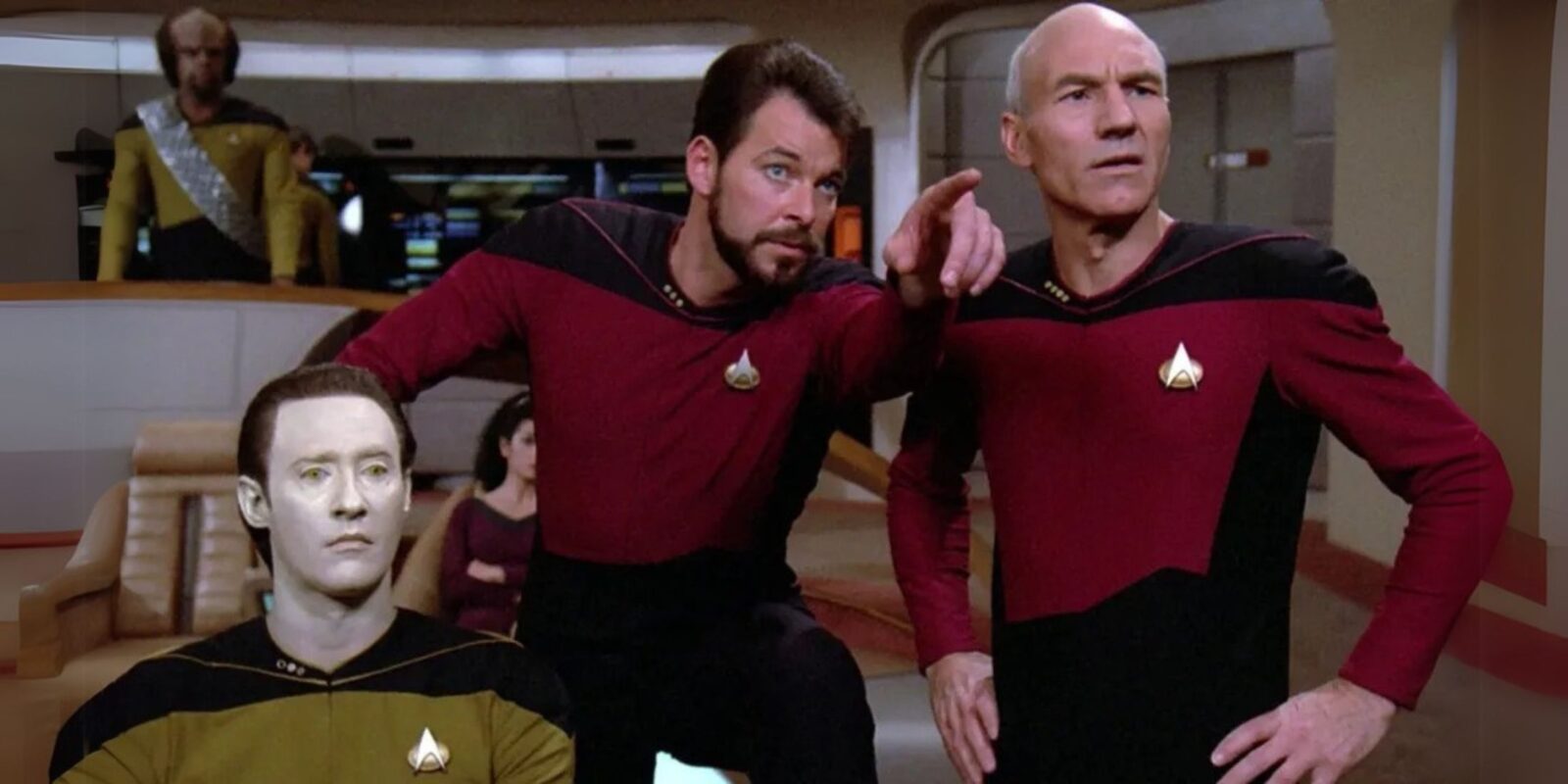

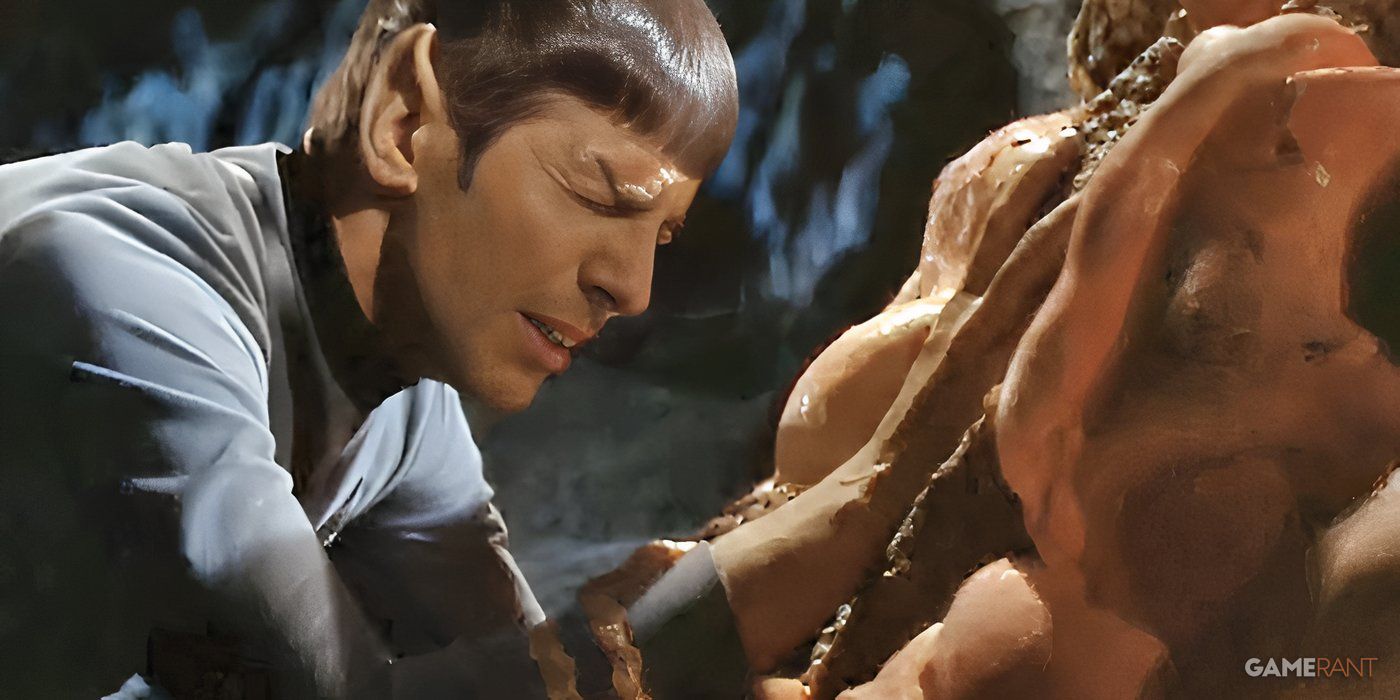
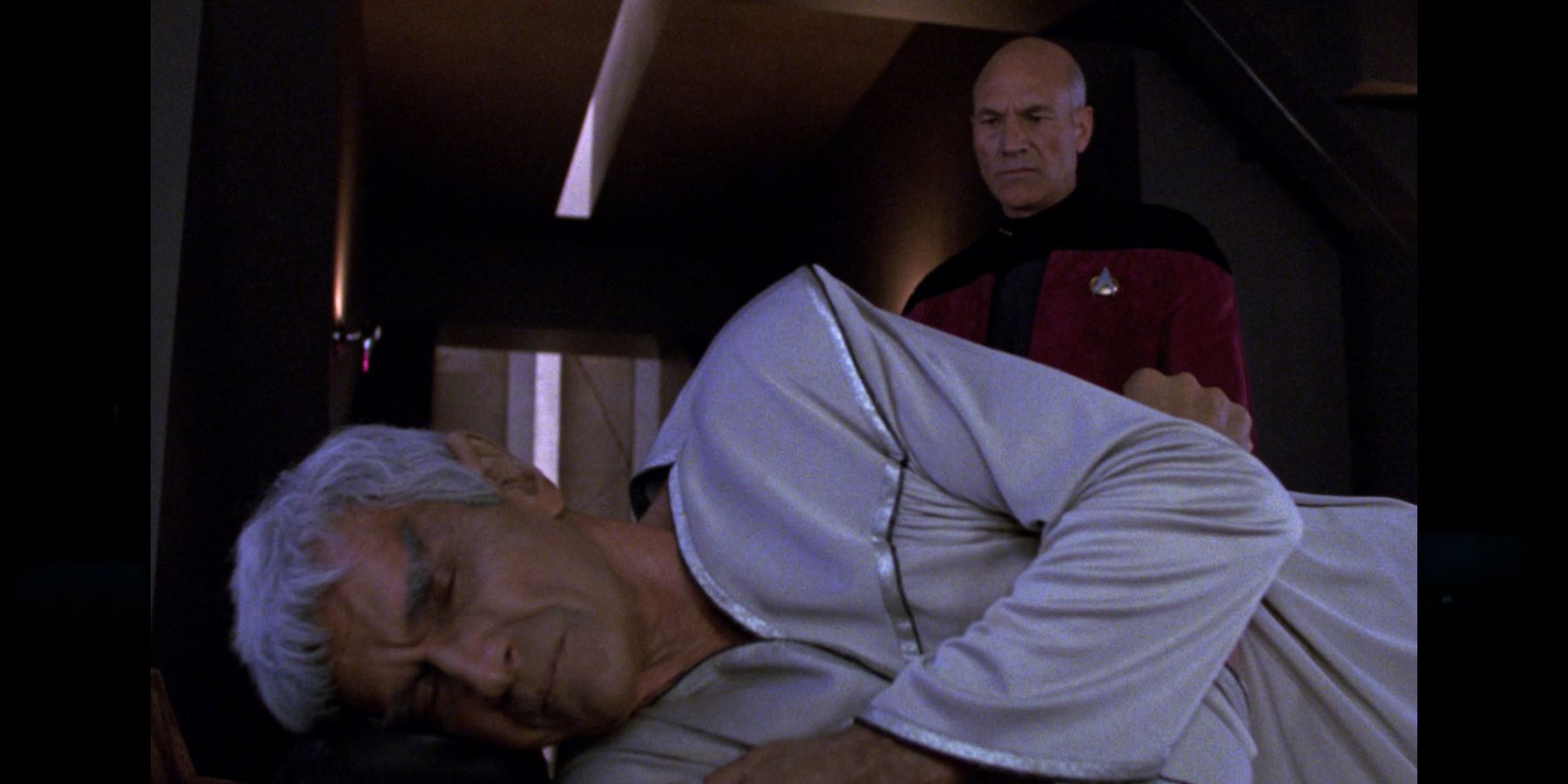

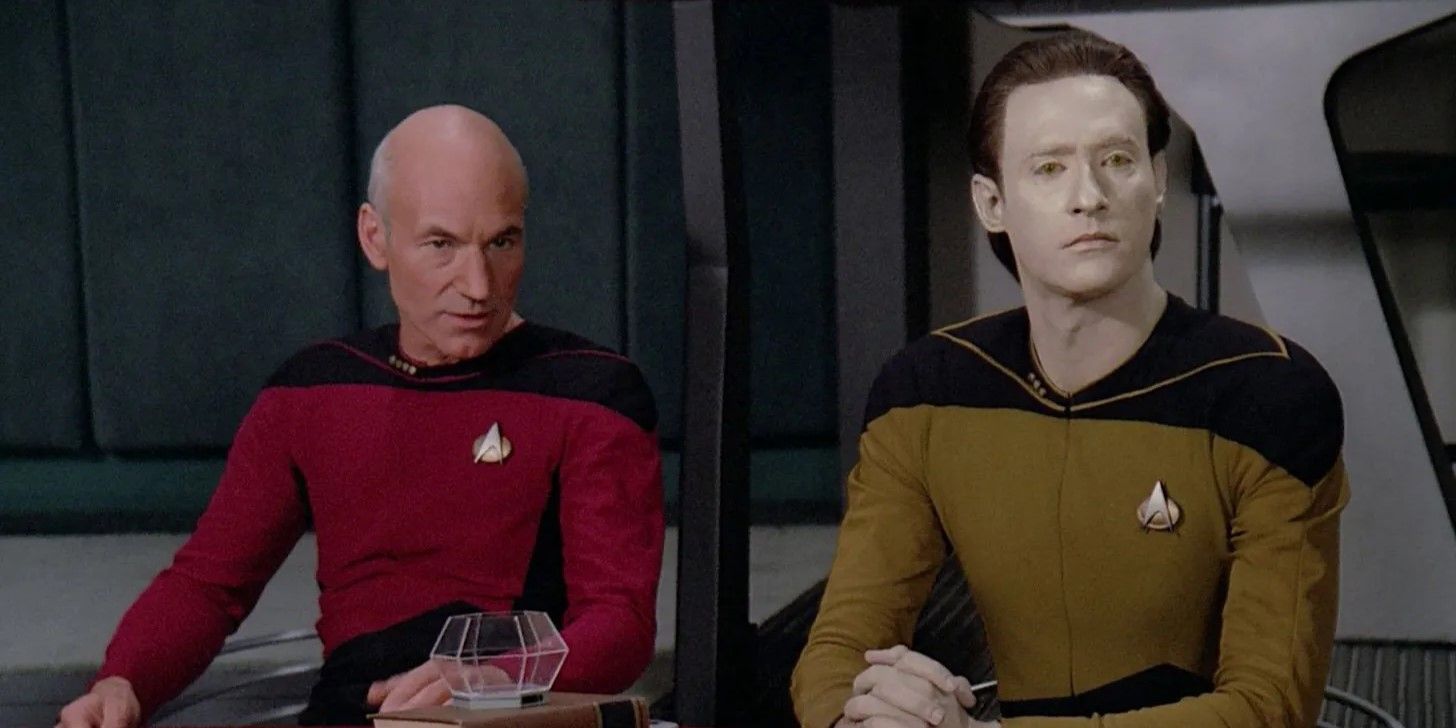
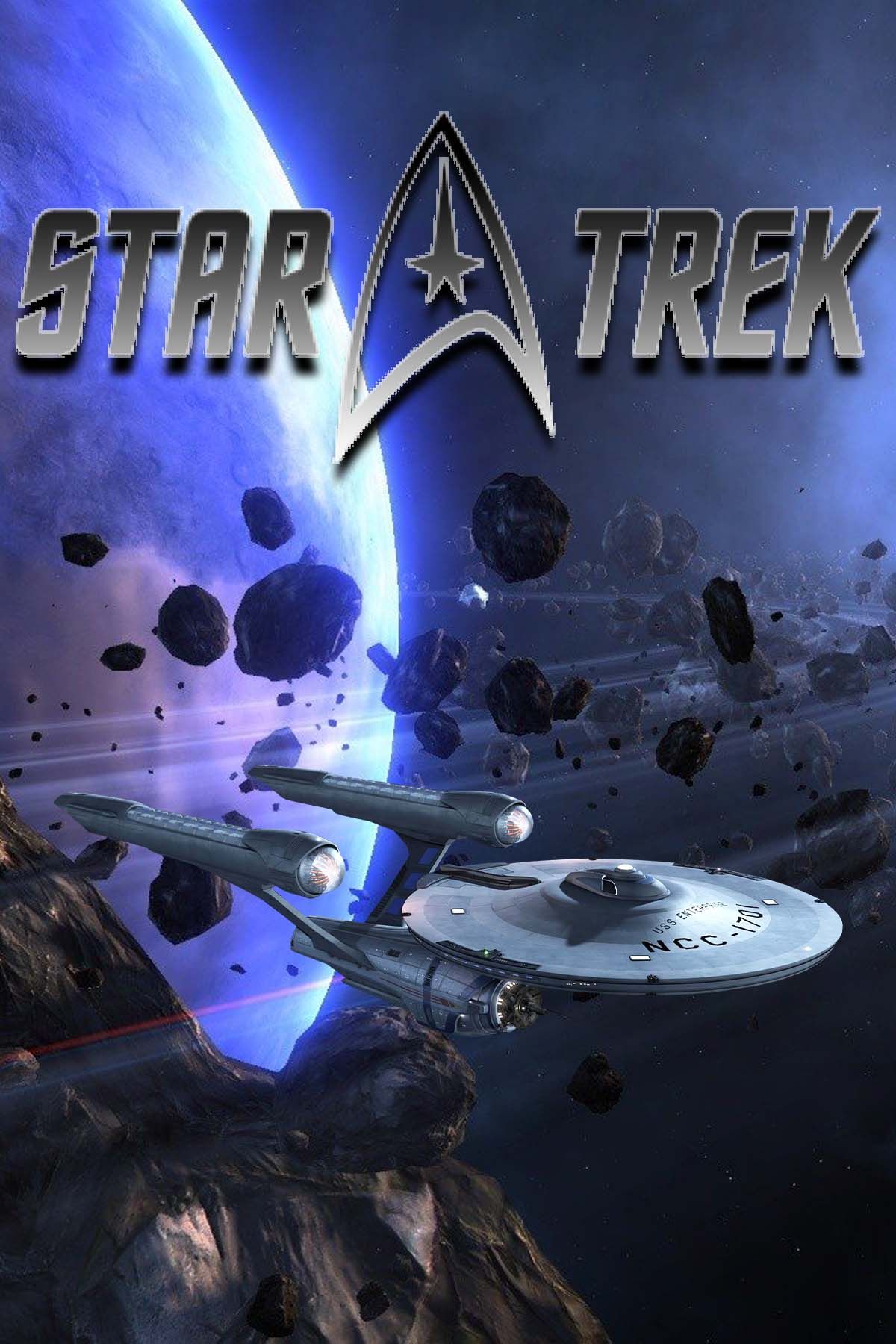








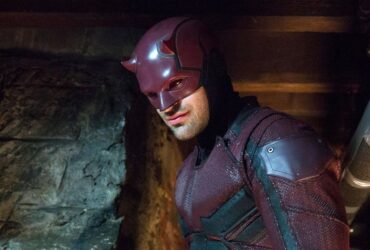

Leave a Reply